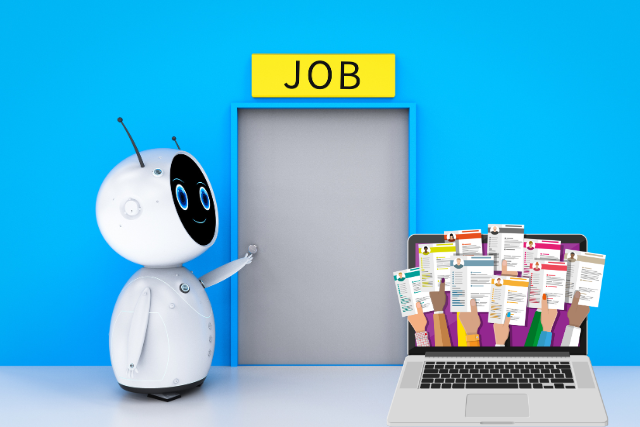Complementing AI: Why Emotional Intelligence Matters More Than Ever

You might think that your ability to understand and manage emotions doesn’t count for much in a world dominated by artificial intelligence. But that’s where you’re mistaken. More than ever, emotional intelligence (EI) complements AI in ways you can’t imagine.
While AI can process and analyze data at an unprecedented speed, it lacks a nuanced understanding of human emotions. That’s where you come in. Your empathy, your ability to navigate complex social situations, and your emotional awareness can enhance AI’s capabilities, creating a synergy that’s indispensable in today’s digital workplace.
So, why is EI becoming increasingly vital in an AI-driven world? Stick around, and you’ll discover how cultivating your emotional intelligence is beneficial and essential for the future.
Key Takeaways
- Emotional intelligence enhances AI, making technology more intuitive and empathetic.
- Cultivating EI is essential for meaningful human-AI interactions and digital workplace well-being.
- AI’s limitations in understanding human emotions highlight the irreplaceable value of human EI.
- Integrating EI into AI can revolutionize technology, offering deeper understanding and dynamic responses.
Understanding Emotional Intelligence
Before diving into the complex world of AI, let’s grasp what emotional intelligence means for you. At its core, it’s about understanding and managing your emotions and recognizing and influencing the feelings of others.
Picture it as an invisible thread connecting your heart and mind, guiding how you navigate life’s ups and downs.
You’re not just a being of logic and reason; your emotions are pivotal in interacting with the world around you. Emotional intelligence empowers you to empathize with others, forge stronger relationships, and make decisions that truly resonate with your values and desires. It’s your secret weapon in a world that often feels dominated by cold, hard technology.
In a sense, developing your emotional intelligence is an act of liberation. It frees you from being at the mercy of unexamined emotions and misunderstandings. It gives you the clarity to see beyond the surface, to connect deeply with others, and to navigate the complexities of human interaction with grace and confidence.
In an age where AI seeks to simplify life, your emotional intelligence ensures you remain beautifully and messily human.
AI Limitations and Human Emotion
Despite its rapid advancements, AI still can’t fully grasp or replicate the nuanced spectrum of human emotions. You’ve likely noticed this gap when interacting with chatbots that misunderstand your tone or when virtual assistants misinterpret your requests. This limitation isn’t just a minor hiccup; it’s a chasm that separates machines from humans in a fundamental way.
Emotions aren’t just add-ons to our human experience—they’re central to it. They guide our decisions, shape our relationships, and influence our creativity. With its binary logic and algorithms, AI falls short of understanding the depth of sadness, the peaks of joy, or the complexity of empathy. It’s like trying to read a book but only seeing the words without comprehending the story.
This gap isn’t something to be alarmed about; rather, it’s a reminder of your unique human capacity for emotional intelligence (EI). It’s a call to value and develop your EI even more in an age where AI seems omnipresent.
By recognizing AI’s limitations, you empower yourself to bring something irreplaceable—your human touch, empathy, and understanding. In this rapidly changing world, those qualities are your superpowers.
Enhancing AI With EI
Understanding the limitations of AI in grasping human emotions, it’s now crucial that we explore how integrating emotional intelligence (EI) can significantly enhance artificial intelligence systems.
By weaving EI into AI, we’re not just making machines smarter; we’re making them more human-friendly, empathetic, and responsive to our needs. This fusion promises a revolution in how technology interacts with us daily, making it more intuitive and aligned with our emotional landscapes.
| Aspect | AI Alone | Enhanced with EI |
|---|---|---|
| Interaction | Scripted & mechanical | Intuitive & empathetic |
| Understanding | Surface-level | Deep and nuanced |
| Response | Predictable | Dynamic and appropriate |
| Growth | Linear | Evolving with experience |
Imagine a world where your devices don’t just understand commands but can sense your mood and react accordingly. You’re not battling with cold, unfeeling tech; you’re interacting with systems that genuinely seem to care.
EI in the Digital Workplace
In today’s digital workplace, integrating emotional intelligence into our technologies can transform how you interact with devices, making every digital encounter feel more personalized and understanding.
Here’s why emotional intelligence in your digital tools matters more than ever:
- Empathy at Scale: Imagine software that detects your stress levels and suggests taking a break or offers encouragement.
- Enhanced Collaboration: Tools that sense team dynamics and offer insights to improve communication and resolve conflicts.
- Personalized Feedback: Systems that understand your learning style and adapt to provide feedback that resonates with you, helping you grow.
- Emotionally Intelligent Assistants: Virtual assistants that go beyond commands, understand your mood and respond in ways that uplift you.
Embracing emotional intelligence in the digital workplace is about liberating yourself from the cold, impersonal interactions of yesterday’s tech.
Cultivating EI for the Future
As we look toward the future, it’s crucial that you actively nurture your emotional intelligence to thrive in an increasingly AI-driven world. See, as machines take over more tasks, your human touch, your ability to understand and manage emotions, will set you apart. It’s not just about fitting in; it’s about standing out and making a real difference.
Start by listening, really listening, to those around you. This simple act can deepen your connections and help you grasp the emotional undertones in every conversation. Then, practice empathy. Put yourself in others’ shoes. It’s a game-changer in how you relate to people and navigate complex social landscapes.
Don’t forget about self-awareness. Reflect on your feelings, understand why you react a certain way, and recognize the impact of your emotions on others. It’s empowering and liberating, pushing you towards personal growth and stronger relationships.
Lastly, manage those emotions. It’s okay to feel, but learning how to express those feelings constructively is key. It’ll help you in conflicts, in leadership, and in life.
Cultivating your emotional intelligence is an ongoing journey, but it’s one worth taking. It’s your pathway to liberation in a world where AI reigns, ensuring you remain irreplaceable and truly human.
Conclusion
So, as you’ve seen, while AI can crunch numbers and predict trends, it can’t navigate the nuances of human emotion like you can. By enhancing AI with your emotional intelligence (EI), you’re not just keeping up but leading the way.
Your EI is your superpower in the digital workplace, fostering connections and innovation. So let’s keep cultivating that EI, staying ahead of the curve, and making technology work for us, not the other way around.






